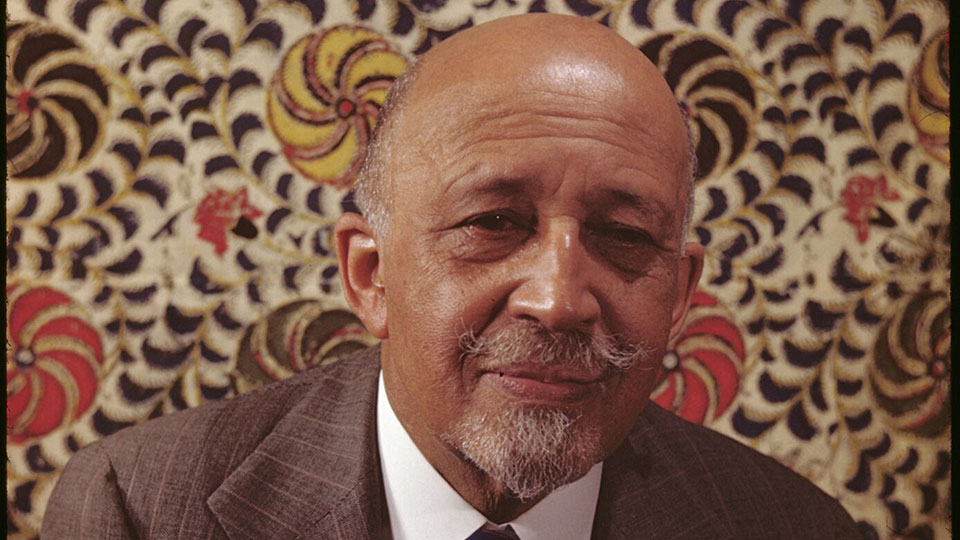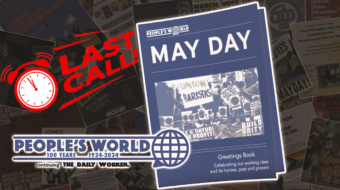
This article is reprinted from Feb. 13, 2015.
W.E.B. Du Bois’s magisterial book The Souls of Black Folk (1907) has left one particularly clear imprint on American conversations: its description, in the opening chapter “Of Our Spiritual Strivings,” of African Americans’ “double consciousness,” their sense of being both within and without American identity, insiders yet outsiders to this national community. Yet in his closing chapter “The Sorrow Songs,” Du Bois frames that relationship quite differently, and in a way that shows Black History Month in a new and important light.
Having analyzed the genre and importance of the African American spiritual, with musical selections from which he has begun each of his book’s chapters, Du Bois pulls back and addresses European Americans directly, in a paragraph that demands quoting in full:
“Your country? How came it yours? Before the Pilgrims landed we were here. Here we have brought our three gifts and mingled them with yours: a gift of story and song – soft, stirring melody in an ill-harmonized and unmelodious land; the gift of sweat and brawn to beat back the wilderness, conquer the soil, and lay the foundations of this vast economic empire two hundred years earlier than your weak hands could have done it; the third, a gift of the Spirit. Around us the history of the land has centered for thrice a hundred years; out of the nation’s heart we have called all that was best to throttle and subdue all that was worst; fire and blood, prayer and sacrifice, have billowed over this people, and they have found peace only in the altars of the God of Right. Nor has our gift of the Spirit been merely passive. Actively we have woven ourselves with the very warp and woof of this nation – we fought their battles, shared their sorrow, mingled our blood with theirs, and generation after generation have pleaded with a headstrong, careless people to despise not Justice, Mercy, and Truth, lest the nation be smitten with a curse. Our song, our toil, our cheer, and warning have been given to this nation in blood-brotherhood. Are not these gifts worth the giving? Is not this work and striving? Would America have been America without her Negro people?”
Du Bois’s fellow historian Carter G. Woodson put it this way: “We should emphasize not Negro History, but the Negro in history.” Yet Woodson’s most lasting legacy, the 1926 creation of Negro History Week that has been expanded into Black History Month, feels far too often as if its celebrations and commemorations treat African American figures and experiences, stories and histories, in the former way: as something separate, or at least distinct, from the broad sweep of American history.
To rename Black History Month as American History Month would be, to be sure, to risk diluting its necessary focus on those African American stories and histories – to parallel the slippage when critics argue we must abandon “Black Lives Matter” for “All Lives Matter” (as if the first does not already allow for the second). But what if we reframed the month’s import and impact without changing the name? What if we consistently defined the month’s figures and identities, events and stories, issues and histories as at one and the same time black history and American history, as indeed the vital threads in the American pattern that they represent?
This frame could be applied to any and all African American histories, but a specific example is Quock Walker, the Massachusetts slave whose 1781 legal suits and petitions, based in the language of both the Declaration of Independence and the Massachusetts Constitution, contributed significantly to that state’s abolition of slavery. Better remembering Walker would certainly connect us to the national scope of the slave system, as well as to African Americans’ active roles in resisting and ending it. But at the same time, Walker represents an exemplary Revolutionary American and helps us see how the language, ideas, and effects of the Revolutionary era were engaged with and used by Americans far beyond the framers. What Quock Walker embodies, then, is precisely the inseparability of black history and American history, the vital influence of the former on the latter, and the necessity of remembering and telling both.
Black History Month is American History Month. It’s too long for a hashtag, and perhaps for a slogan as well. But what better way to honor the legacies of founding African American historians like Woodson and Du Bois than to offer a more accurate assessment of the intertwined American stories and histories for which they argued and worked so potently.












Comments